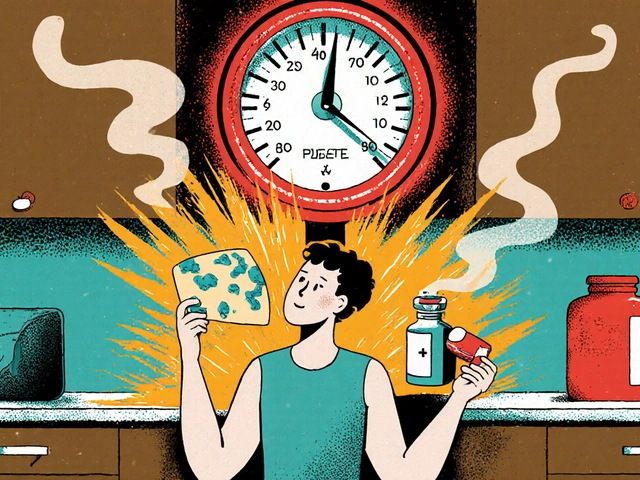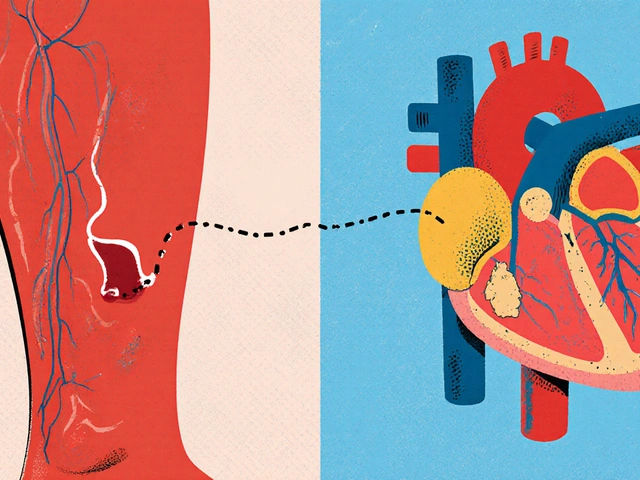Dessicated Thyroid (NDT): What You Need to Know
Some people swear they feel better on natural desiccated thyroid (NDT) when synthetic levothyroxine didn’t help. That’s why it’s worth a clear, practical look: what NDT is, how it acts, when it might help — and the real risks to watch for.
How dessicated thyroid works
NDT is made from dried pig thyroid. It contains both T4 and T3 hormones plus small amounts of T2/T1. That mix can give quicker symptom relief for people who still feel sluggish on T4-only therapy. Common brand names you’ll see are Armour Thyroid, Nature-Throid, and WP Thyroid.
Doctors often measure TSH to track thyroid replacement. With NDT, T3 levels can rise more than with levothyroxine, so TSH might fall even when you feel fine. That makes tracking symptoms and free T4/free T3 useful, not only TSH.
Choosing and using NDT safely
Dosing is individual. NDT is measured in grains (1 grain = 60 mg). A rough conversion often used is 1 grain ≈ 100 mcg levothyroxine, but don’t switch doses on assumptions alone — work with your clinician. Start low if you’re sensitive to stimulatory effects (palpitations, jitteriness, weight loss) and adjust every 6–8 weeks based on labs and symptoms.
Watch for side effects that suggest overtreatment: shaking, fast heart rate, trouble sleeping, or bone thinning over time. People with heart disease must be extra careful; increasing thyroid hormone raises heart workload.
Drug and food interactions matter. Take NDT away from iron, calcium, soy, and some antacids — these reduce absorption. If you take multiple daily meds, pick a consistent routine and keep it the same every day.
Allergy and ethics: NDT is pork-derived, so it isn’t an option for people with pork allergies or certain dietary restrictions. Pregnancy needs close supervision — thyroid needs change in pregnancy and uncontrolled levels affect the baby.
Buying tips: Many countries require a prescription. If you order online, pick a licensed pharmacy with clear contact details and good reviews. Watch for inconsistent dosing between brands — some patients report different effects switching manufacturers.
Monitoring is simple but important: track symptoms, get labs (TSH, free T4, free T3) after dose changes, and check bone density and heart health if you’re on higher doses long-term. If you try NDT, expect a few visits and blood tests to find the right dose.
Bottom line: NDT can help some people who don’t feel right on T4-only meds, but it needs careful dosing and monitoring. Talk openly with your provider about symptoms, labs, and any conditions that could make NDT risky for you.

- Jan 28, 2025
- Posted by Cillian Osterfield
Exploring Alternatives to Synthroid for Thyroid Health
Delving into alternatives to Synthroid, this article provides an insightful look at various options for managing hypothyroidism. It explores the benefits and drawbacks of each alternative, examining their unique features and suitability for different lifestyles. Readers will gain a comprehensive understanding of the treatments available beyond the synthetic option of Synthroid. The article also includes a comparison to help readers make informed decisions about their thyroid health.
Categories
- Health and Wellness (72)
- Medications (69)
- Health and Medicine (28)
- Pharmacy Services (12)
- Mental Health (9)
- Health and Career (2)
- Medical Research (2)
- Business and Finance (2)
- Health Information (2)
Latest Posts
©2026 heydoctor.su. All rights reserved





